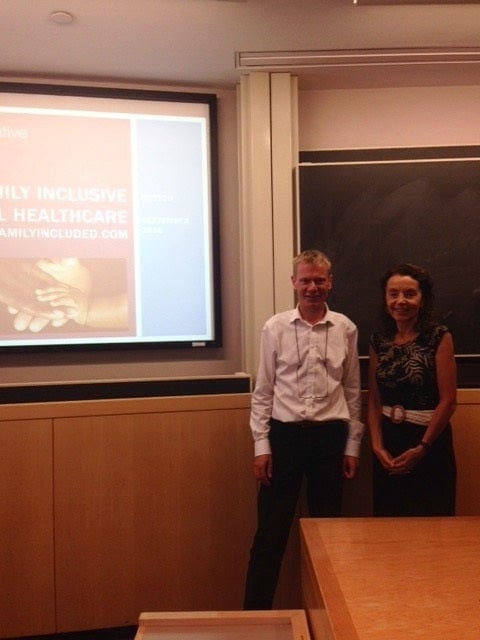Maternal Health Task Force
The Maternal Health Task Force strives to create a strong, well-informed and collaborative community of individuals focused on ending preventable maternal mortality and morbidity worldwide.
677 Huntington Avenue
Boston, MA 02115
Blog
-
The Lancet Maternal Health Series: “Diversity and Divergence: The Dynamic Burden of Poor Maternal Health”
The Lancet Maternal Health Series published last month contains six papers highlighting the importance of improving access to high quality maternal health care for all women across the globe. In paper 1, “Diversity and divergence: The dynamic burden of poor maternal health”, Graham and colleagues examine the changing distribution of causes of maternal death and disability (diversity) and the persistent inequalities between and within populations (divergence)…read more
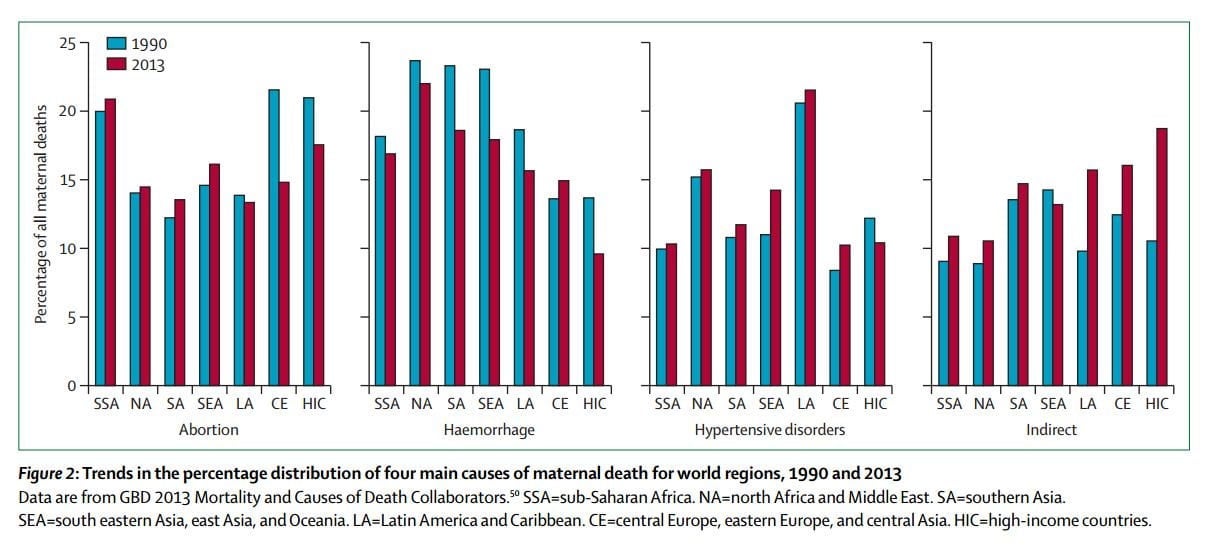
-
Not All Facilities Are Created Equal: The Relationship Between Delivery Volume, Surgical Capacity and Quality of Maternal Health Care in Africa
In a recent study published in The Lancet Global Health, Kruk and colleagues used nationally representative health system surveys to examine the quality of maternal health care provided in facilities in Kenya, Namibia, Rwanda, Tanzania and Uganda in relation to volume of deliveries and surgical capacity. Quality of care was evaluated using a set of indicators that measured the facility’s availability of 24-hour skilled staff, referral system, electricity, safe water, equipment for infection control, and ability to administer oxytocin, antibiotics and magnesium sulfate when necessary…read more
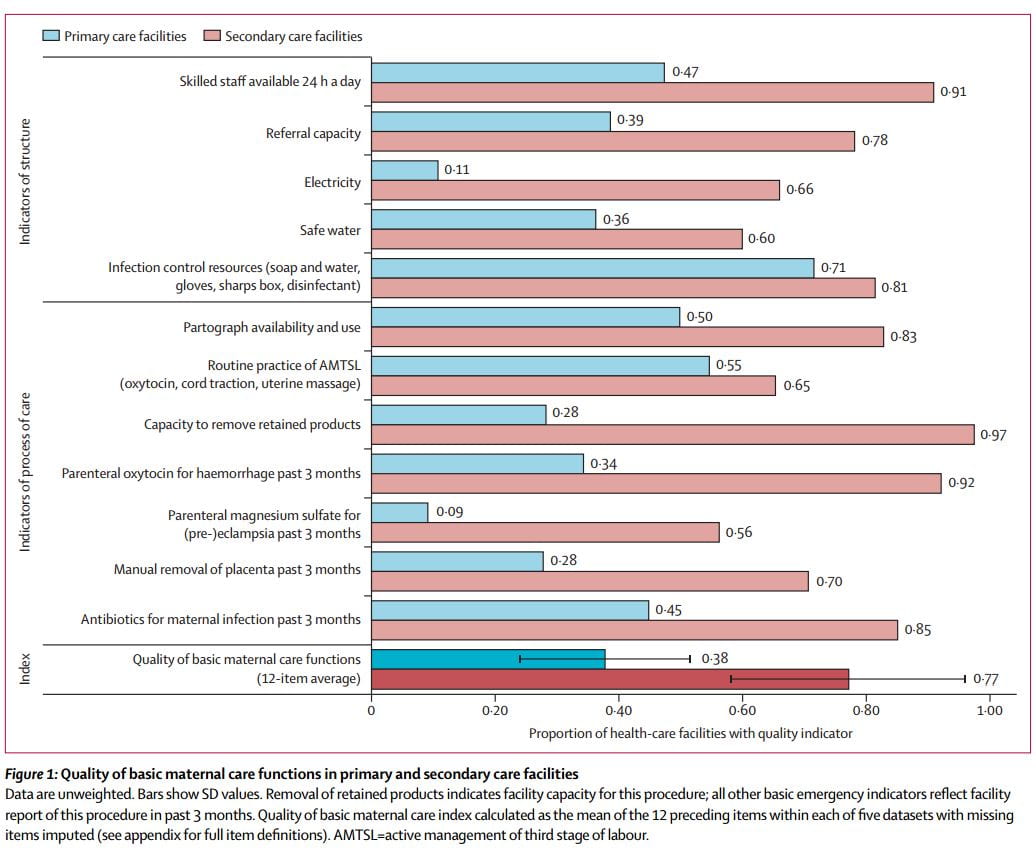
-
Global Leaders in Maternal and Newborn Health: Dr. Zulfiqar Bhutta (Canada and Pakistan)
SMNLW participant Dr. Zulfiqar A. Bhutta is the Robert Harding Inaugural Chair in Global Child Health at The Hospital for Sick Children, Toronto, Co-Director of the SickKids Centre for Global Child Health and the Founding Director of the Center of Excellence in Women and Child Health, at the Aga Khan University, unique joint appointments. He also holds adjunct professorships at several leading Universities globally including the Schools of Public Health at Johns Hopkins (Baltimore), Tufts University (Boston), Boston University School of Public Health, University of Alberta as well as the London School of Hygiene & Tropical Medicine. He is a designated Distinguished National Professor of the Government of Pakistan and was the Founding Chair of the National Research Ethics Committee of the Government of Pakistan from 2003-2014…read more

-
One Year Anniversary of the Sustainable Development Goals (SDGs): Where Are We Now?
One of the defining features of the SDGs is an increased emphasis on equity and data disaggregation. Whereas the Millennium Development Goals were largely focused on improving global and regional outcomes on average, the SDGs call for efforts to improve outcomes at the national and local levels with specific attention to vulnerable populations. The SDG agenda requires access to accurate, disaggregated data and data infrastructure. Strong health information systems are necessary for collecting, measuring and tracking data in order to quantify progress…read more
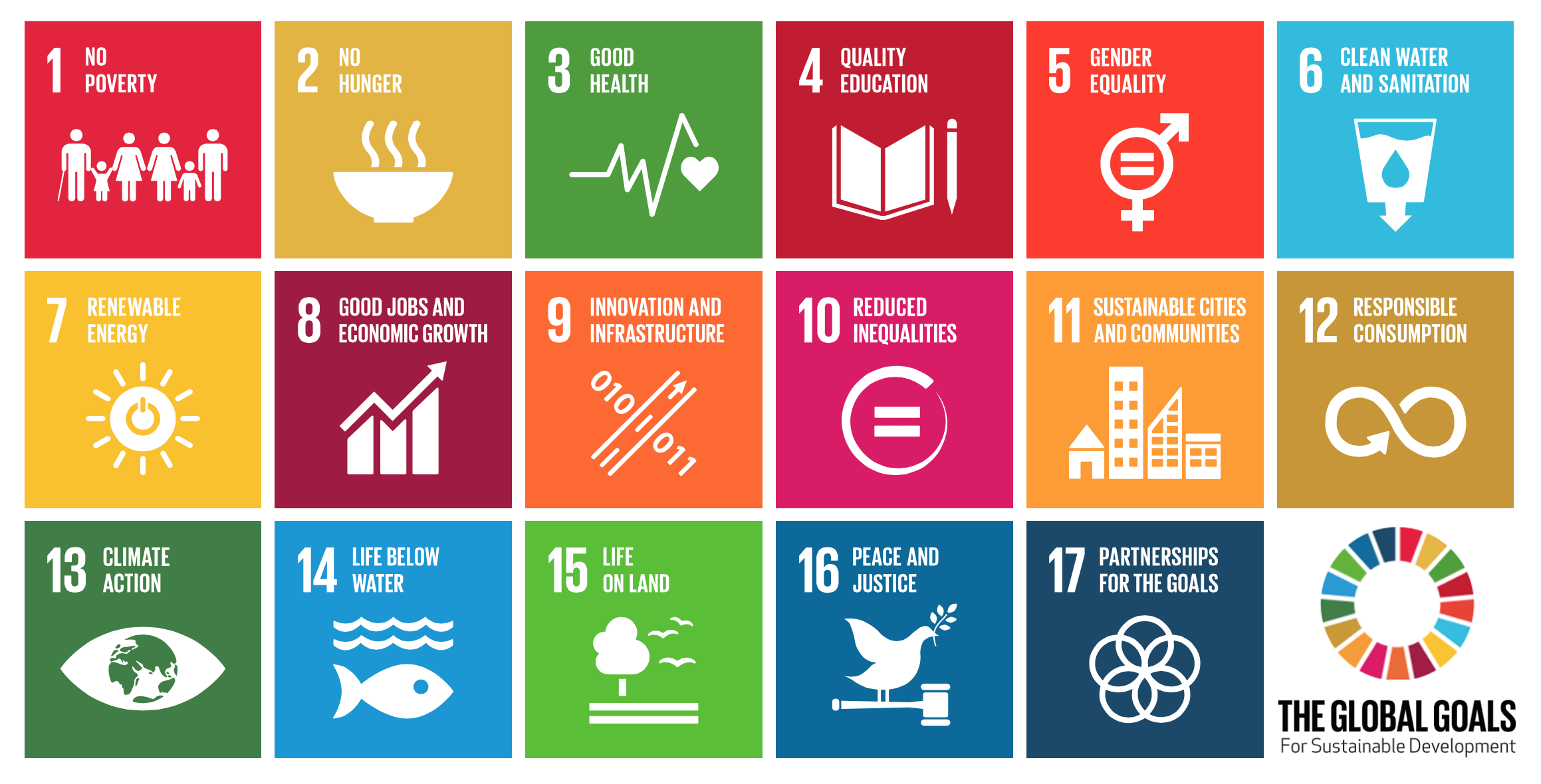
-
Changing Rural Maternal and Child Health Through Access to Contraception
While some underlying factors such as poverty and illiteracy adversely affect the health and economic outcomes of people living in rural areas, other challenges to women’s and children’s survival in these communities include lack of access to comprehensive sexual education and contraception. In many of these communities, discussing sex is taboo, and some girls are still forced to marry shortly after onset of menstruation. Often women are not empowered to negotiate sex with their partners, families have poor child-spacing practices and parents lack knowledge of appropriate vaccination schedules for their newborns. These factors added to economic and geographic vulnerabilities have led to negative maternal and child survival narratives in rural communities…read more

-
Long-Acting Reversible Contraceptives: Papers From the 2016 International Conference on Family Planning
Global Health: Science and Practice recently released a special issue highlighting a number of papers on long-acting reversible contraceptives (LARCs) following the 2016 International Conference on Family Planning held in Indonesia. The theme of this year’s conference was “global commitments, local actions”, emphasizing the role of partnerships in achieving the Sustainable Development Goals. The papers examine the prevalence of LARC utilization, local perceptions of LARCs and the effectiveness of programming to promote LARCs in countries around the world…read more
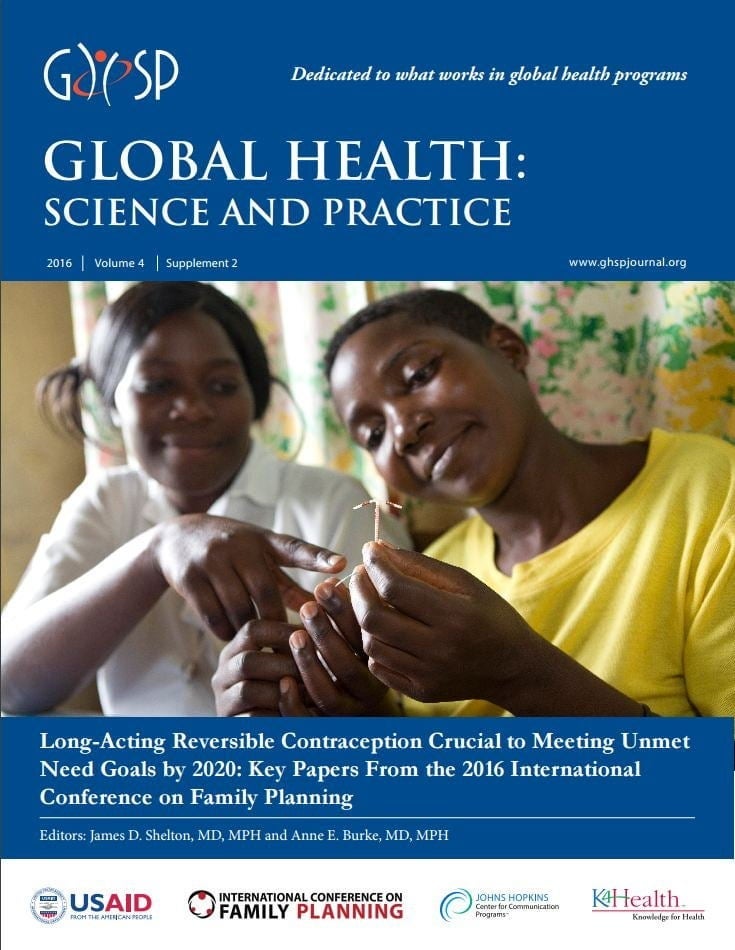
-
New Publications From the World Health Organization: Counting Maternal Deaths and Stillbirths
The majority of stillbirths and maternal and neonatal deaths are preventable, and yet every year an estimated 303,000 mothers die during childbirth, 2.7 million babies die within the first 28 days of life and 2.6 million stillbirths occur. Particularly in countries with insufficient health information systems, many of these deaths are not recorded or reviewed. Access to accurate data on the incidence and causes of mortality is crucial for developing life-saving interventions. The World Health Organization (WHO) recently released three publications designed to help countries improve data collection on maternal and neonatal deaths…read more
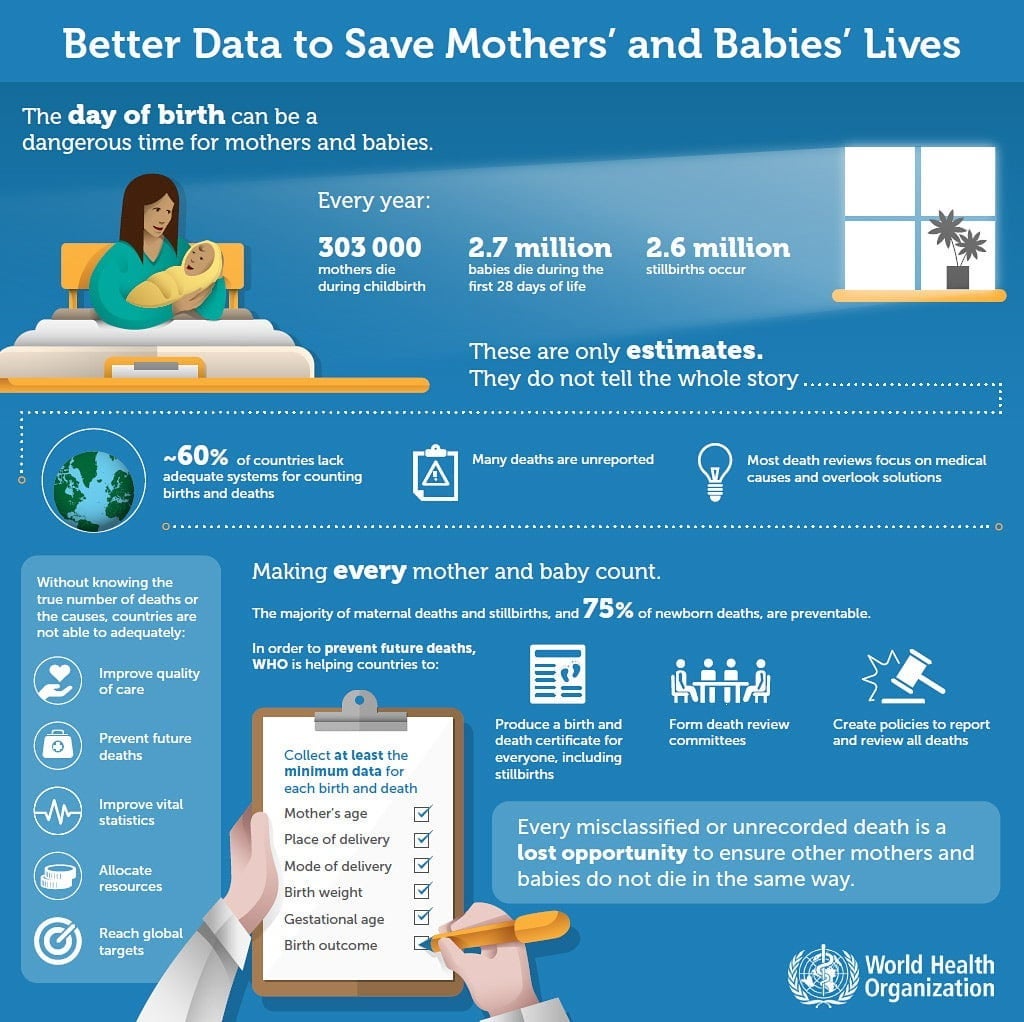
-
The Lancet Maternal Health Series
The Maternal Health Task Force (MHTF) is pleased to share with you The Lancet Maternal Health Series! We are grateful to Oona Campbell and Wendy Graham who played crucial roles in putting this series together and to the many authors and colleagues who were involved in the production of the series. The series highlights key issues in the global maternal health field and provides diverse perspectives on the way forward…read more
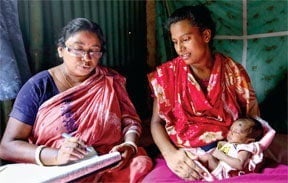
-
Disparities in Antenatal Care Utilization in Mesoamerica and Beyond
Antenatal care (ANC) is a crucial component of ensuring optimal health outcomes for mothers and newborns. The World Health Organization (WHO) recommends that women attend at least four ANC visits during pregnancy starting in the first trimester. ANC visits often serve as a gateway to health care for women, particularly in low-resource settings. Unfortunately, many women around the world do not access ANC at health facilities due to a number of barriers, including the inability to afford services and long distance from health facilities. In numerous settings, women with the highest levels of education and from the wealthiest socioeconomic strata are more likely to attend at least four ANC visits…read more
-
Family Inclusive Maternal Health Care: What it Is and Why it Matters
Not surprisingly, public health professionals, researchers and clinicians in the maternal and child health field have traditionally focused primarily on the mother and the child. Interventions aimed at encouraging antenatal care attendance, facility-based delivery and exclusive breastfeeding have generally targeted the pregnant woman or mother, often without much attention to her partner, surrounding family or social network…read more
